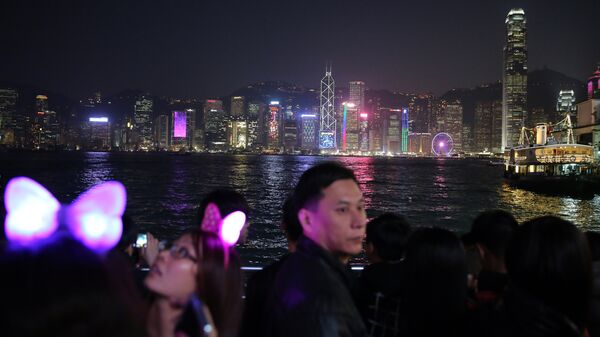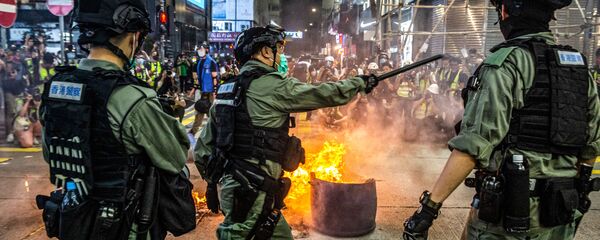China formally summoned US Ambassador Terry Branstad Wednesday to express its displeasure with the US move to strip Hong Kong of its special trade status, and to voice its opposition to the Hong Kong Human Autonomy Act drafted by Congress and signed by the US president this week.
In a statement accompanying the summons cited by the People’s Daily, Chinese Vice Foreign Minister Zheng Zeguang was said to have urged the US diplomat to convey to Washington the need to “correct the mistake” made through America’s “vehement interference” in China’s internal affairs.
“We urge the US to change its course immediately, stop defamation and provocation against China, and do not go further and further on the wrong path,” the official was quoted as saying.
“The Hong Kong [law] and the executive order were concocted by the US not because it cares about democracy and freedom of Hong Kong people, but as a means to hinder the development of China. Such a scheme will never succeed,” Zheng stressed.
The Chinese official also warned that Beijing would not hesitate to sanction US nationals and entities to protect its interests on a tit-for-tat basis. “China has and will continue to take countermeasures to resolutely safeguard the core interests. I want to tell the United States that any bullying and injustice imposed on China by the US will be resolutely countered by China. The United States’ attempt to block China’s development is doomed to failure,” he noted.
The summons comes following a formal Foreign Ministry statement condemning the US’s Hong Kong-related decisions, and threatening “countermeasures” if the US didn’t correct course immediately.
On Tuesday, President Trump signed the so-called ‘Hong Kong Autonomy Act’ into law. Among other things, the legislation envisions sanctions against “foreign individuals and entities that materially contribute to China’s failure to preserve Hong Kong’s autonomy.” The same day, Trump also signed an executive order formally ending the US’s preferential trade status for Hong Kong over alleged “repressive actions” against the city’s residents.
Hong Kong has enjoyed autonomy within the People’s Republic of China under the ‘One Country, Two Systems’ constitutional principal granted to it and Macau after they became Special Administrative Regions in 1997 and 1999, respectively. Recently, the city implemented a new national security law which pro-autonomy critics allege have squashed the city’s unique status.
Among the law’s provisions is the banning of political groups financed from abroad, and the criminalization of secessionist and subversive sentiments. The law was passed a year after the start of mass anti-government protests in the Asian financial hub related to an extradition law.
Along with the US, the UK, Canada, Australia, the UK, and multiple other countries have expressed concerns over the security law, with Beijing calling on each of these nations to avoid interfering in its internal affairs.





